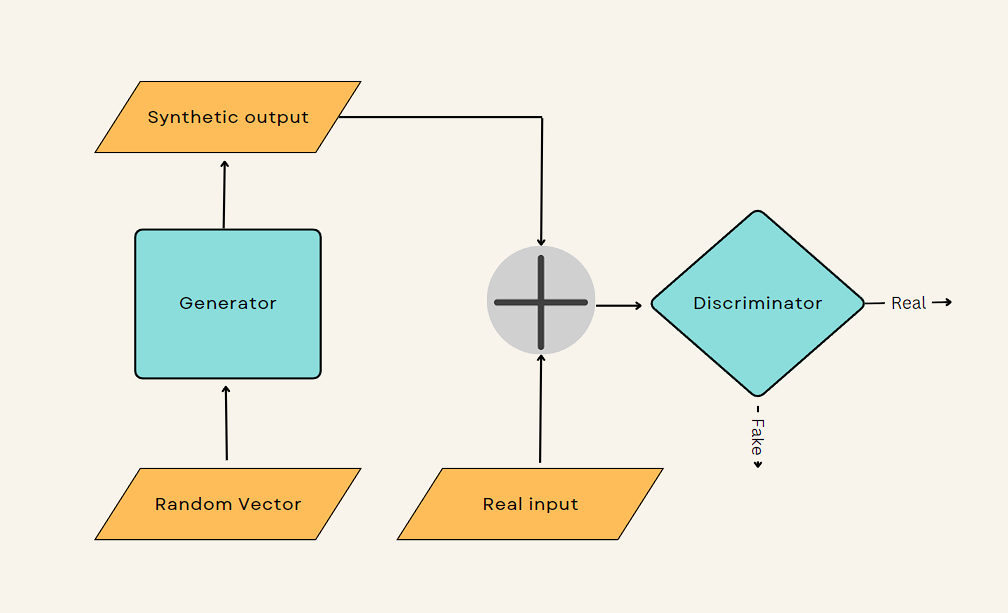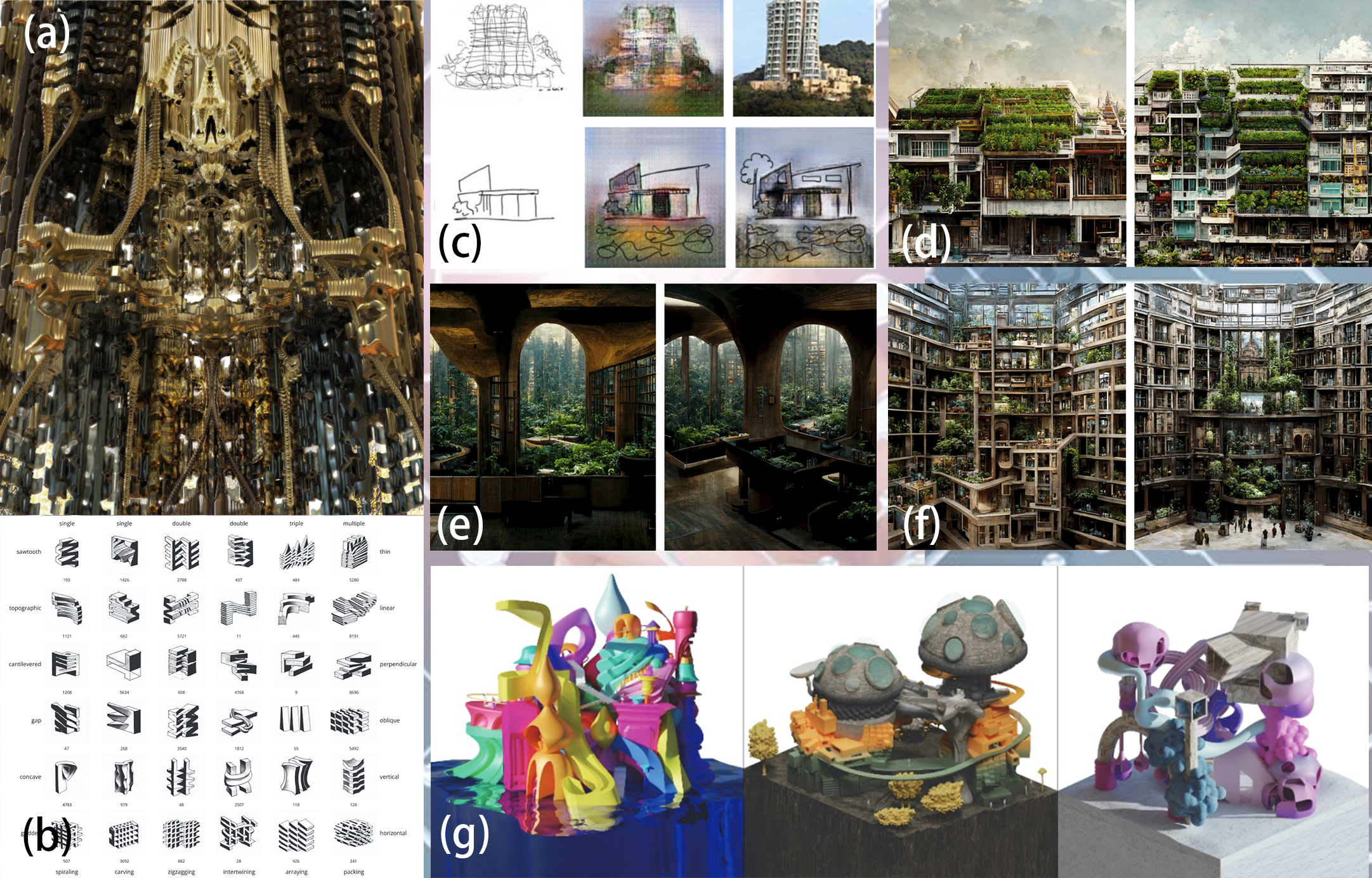Generative Artificial Intelligence: A Systematic Review and Applications
2405.11029

0
0

Abstract
In recent years, the study of artificial intelligence (AI) has undergone a paradigm shift. This has been propelled by the groundbreaking capabilities of generative models both in supervised and unsupervised learning scenarios. Generative AI has shown state-of-the-art performance in solving perplexing real-world conundrums in fields such as image translation, medical diagnostics, textual imagery fusion, natural language processing, and beyond. This paper documents the systematic review and analysis of recent advancements and techniques in Generative AI with a detailed discussion of their applications including application-specific models. Indeed, the major impact that generative AI has made to date, has been in language generation with the development of large language models, in the field of image translation and several other interdisciplinary applications of generative AI. Moreover, the primary contribution of this paper lies in its coherent synthesis of the latest advancements in these areas, seamlessly weaving together contemporary breakthroughs in the field. Particularly, how it shares an exploration of the future trajectory for generative AI. In conclusion, the paper ends with a discussion of Responsible AI principles, and the necessary ethical considerations for the sustainability and growth of these generative models.
Create account to get full access
What is Generative Artificial Intelligence?
Overview
- Generative AI refers to a class of machine learning models that can create new, original content such as images, text, audio, and video.
- These models are trained on large datasets and learn to generate content that resembles the training data, but is not an exact copy.
- Generative AI models are increasingly being used in a variety of applications, from creative tasks like art and music generation to practical applications like language translation and content creation.
Plain English Explanation
Generative AI is a type of artificial intelligence that can create new and original content, instead of just analyzing or processing existing information. These models are trained on huge datasets and learn to generate new content that looks and sounds similar to the data they were trained on, but isn't an exact copy.
For example, a generative AI model trained on a large collection of images could generate brand new images that look like they could have been painted by a human artist. Or a model trained on books and articles could generate completely new written content that reads like it was authored by a person. The possibilities are endless - generative AI is being used for all sorts of creative and practical applications, from making music and art to powering chatbots and translating languages.
Technical Explanation
Generative AI models are a type of machine learning algorithm that can generate new, original content such as images, text, audio, and video. These models are trained on large datasets and learn the underlying patterns and structures in the data. Once trained, they can use these learned representations to produce novel content that resembles the training data, but is not an exact copy.
The key to generative AI is the ability to capture the essential features and characteristics of the training data, and then recombine them in novel ways to generate new content. This is typically done using deep learning architectures like variational autoencoders, generative adversarial networks, and diffusion models. These models learn a compressed, latent representation of the input data, which can then be sampled and decoded to produce new, plausible outputs.
Critical Analysis
While generative AI models have shown impressive capabilities in creating realistic and compelling content, there are some important caveats and considerations to keep in mind. These models can perpetuate biases and stereotypes present in their training data, and their outputs may not always be factually accurate or ethically sound. There are also concerns around the potential misuse of generative AI for malicious purposes, such as generating fake news or deepfake media.
Additionally, the inner workings of many generative AI models are often opaque and difficult to interpret, making it challenging to understand how they arrive at their outputs. This lack of transparency and accountability is an important issue that needs to be addressed as these technologies become more widely adopted.
Conclusion
Generative AI represents a significant advancement in the field of artificial intelligence, with the potential to revolutionize a wide range of industries and applications. From creative tasks like art and music generation to practical applications like language translation and content creation, these models are poised to have a transformative impact on how we create, consume, and interact with digital content.
However, it is crucial that the development and deployment of generative AI systems be accompanied by rigorous ethical considerations and safeguards to ensure they are used responsibly and in a way that benefits society as a whole. Ongoing research and dialogue on the societal implications of these technologies will be key to shaping their future direction and ensuring they are a "blessing" rather than a "curse" for humanity.
This summary was produced with help from an AI and may contain inaccuracies - check out the links to read the original source documents!
Related Papers
🤖
A Systematic Review of Generative AI for Teaching and Learning Practice
Bayode Ogunleye, Kudirat Ibilola Zakariyyah, Oluwaseun Ajao, Olakunle Olayinka, Hemlata Sharma

0
0
The use of generative artificial intelligence (GenAI) in academia is a subjective and hotly debated topic. Currently, there are no agreed guidelines towards the usage of GenAI systems in higher education (HE) and, thus, it is still unclear how to make effective use of the technology for teaching and learning practice. This paper provides an overview of the current state of research on GenAI for teaching and learning in HE. To this end, this study conducted a systematic review of relevant studies indexed by Scopus, using the preferred reporting items for systematic reviews and meta-analyses (PRISMA) guidelines. The search criteria revealed a total of 625 research papers, of which 355 met the final inclusion criteria. The findings from the review showed the current state and the future trends in documents, citations, document sources/authors, keywords, and co-authorship. The research gaps identified suggest that while some authors have looked at understanding the detection of AI-generated text, it may be beneficial to understand how GenAI can be incorporated into supporting the educational curriculum for assessments, teaching, and learning delivery. Furthermore, there is a need for additional interdisciplinary, multidimensional studies in HE through collaboration. This will strengthen the awareness and understanding of students, tutors, and other stakeholders, which will be instrumental in formulating guidelines, frameworks, and policies for GenAI usage.
6/17/2024

Generative AI for Architectural Design: A Literature Review
Chengyuan Li, Tianyu Zhang, Xusheng Du, Ye Zhang, Haoran Xie

0
0
Generative Artificial Intelligence (AI) has pioneered new methodological paradigms in architectural design, significantly expanding the innovative potential and efficiency of the design process. This paper explores the extensive applications of generative AI technologies in architectural design, a trend that has benefited from the rapid development of deep generative models. This article provides a comprehensive review of the basic principles of generative AI and large-scale models and highlights the applications in the generation of 2D images, videos, and 3D models. In addition, by reviewing the latest literature from 2020, this paper scrutinizes the impact of generative AI technologies at different stages of architectural design, from generating initial architectural 3D forms to producing final architectural imagery. The marked trend of research growth indicates an increasing inclination within the architectural design community towards embracing generative AI, thereby catalyzing a shared enthusiasm for research. These research cases and methodologies have not only proven to enhance efficiency and innovation significantly but have also posed challenges to the conventional boundaries of architectural creativity. Finally, we point out new directions for design innovation and articulate fresh trajectories for applying generative AI in the architectural domain. This article provides the first comprehensive literature review about generative AI for architectural design, and we believe this work can facilitate more research work on this significant topic in architecture.
4/3/2024
🤖
Rapid Review of Generative AI in Smart Medical Applications
Yuan Sun, Jorge Ortiz

0
0
With the continuous advancement of technology, artificial intelligence has significantly impacted various fields, particularly healthcare. Generative models, a key AI technology, have revolutionized medical image generation, data analysis, and diagnosis. This article explores their application in intelligent medical devices. Generative models enhance diagnostic speed and accuracy, improving medical service quality and efficiency while reducing equipment costs. These models show great promise in medical image generation, data analysis, and diagnosis. Additionally, integrating generative models with IoT technology facilitates real-time data analysis and predictions, offering smarter healthcare services and aiding in telemedicine. Challenges include computational demands, ethical concerns, and scenario-specific limitations.
6/12/2024
🌐
Generative AI: The power of the new education
Sergio Altares-L'opez, Jos'e M. Bengochea-Guevara, Carlos Ranz, H'ector Montes, Angela Ribeiro

0
0
The effective integration of generative artificial intelligence in education is a fundamental aspect to prepare future generations. This study proposes an accelerated learning methodology in artificial intelligence, focused on its generative capacity, as a way to achieve this goal. It recognizes the challenge of getting teachers to engage with new technologies and adapt their methods in all subjects, not just those related to AI. This methodology not only promotes interest in science, technology, engineering and mathematics, but also facilitates student understanding of the ethical uses and risks associated with AI. Students' perceptions of generative AI are examined, addressing their emotions towards its evolution, evaluation of its ethical implications, and everyday use of AI tools. In addition, AI applications commonly used by students and their integration into other disciplines are investigated. The study aims to provide educators with a deeper understanding of students' perceptions of AI and its relevance in society and in their future career paths.
5/24/2024